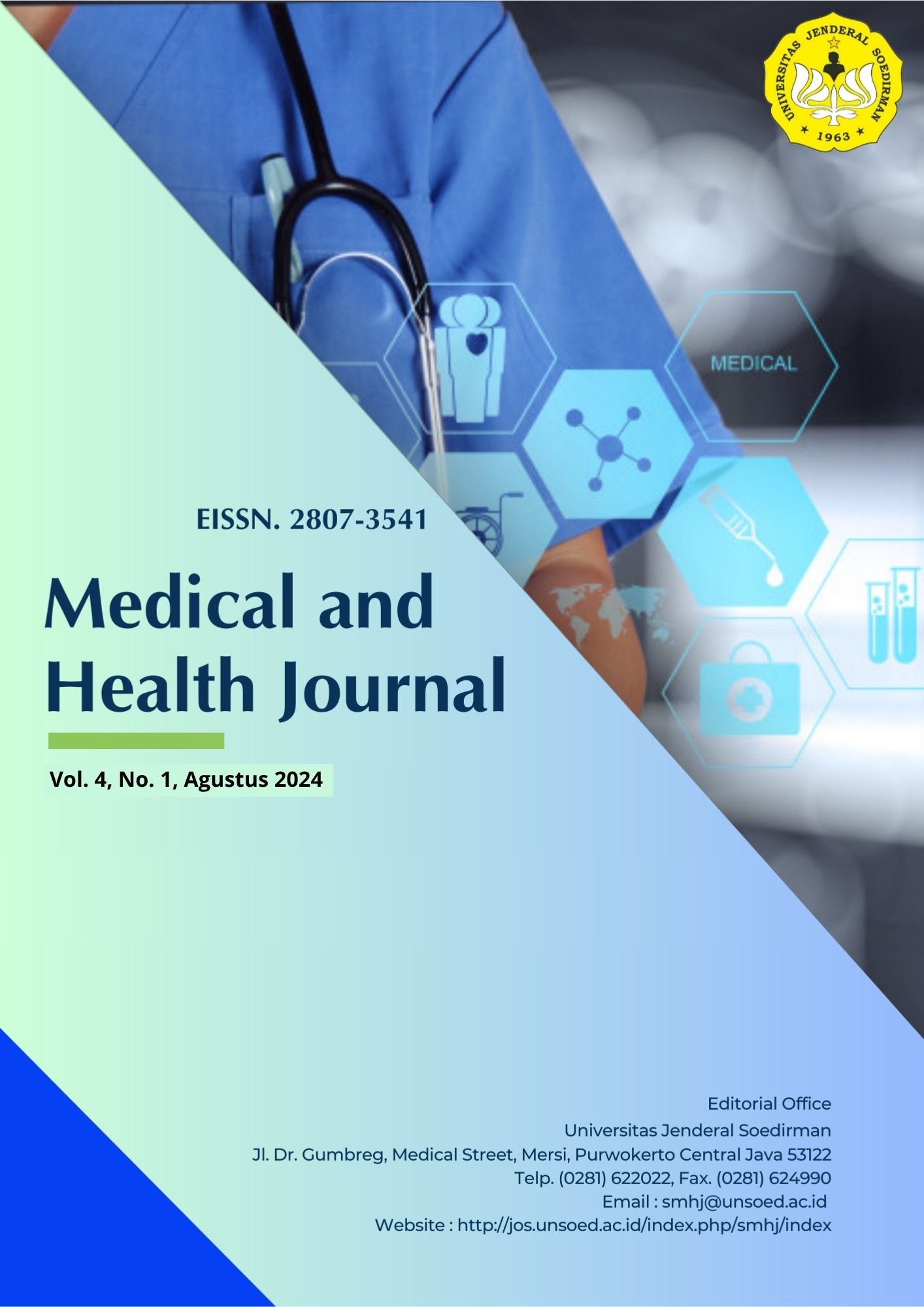SCROFULODERMA IN A 12 YEAR OLD CHILDREN WITH PULMONARY TUBERCULOSIS, PLEURAL EFFUSION, PNEUMONIA AND SEVERE MALNUTRITION: A CASE REPORT
Abstract
Background: Tuberculosis (TB) is a human disease caused by Mycobacterium tuberculosis. The disease primarily attacks the lungs, making pulmonary disease the most common symptom. Other organ systems frequently affected include the respiratory system, gastrointestinal (GI) system, lymphoreticular system, skin, central nervous system, musculoskeletal system, reproductive system, and liver. Scrofuloderma is rarely found in children. Late diagnosis and inappropriate treatment can lead to poor prognosis and complications. Case report: A 12 year old girl was referred from the regional hospital with complaints of shortness of breath since 3 days before admission. Accompanied by gasping, productive cough with difficulty coming out of phlegm, accompanied by an enlarged stomach and swollen legs, and fever fluctuating since 1 week before admission. Starting with a history of lumps on the neck since 6 months and have started tuberculosis therapy for 1 week before admission. Physical examination revealed multiple lymphadenopathy in the right and left cervical regions, decreased sounds in both lungs, and severe malnutrition. The results of a chest x-ray examination showed a massive pleural effusion. Laboratory results showed hypoalbuminemia, positive rivalta test in effusion fluid, and uncompensated respiratory acidosis. Management of this patient consists of oxygen, correction of hypoalbuminemia, antibiotics, anti-tuberculosis drugs, management of malnutrition, and water seal drainage (WSD). Conclusion: Although rare, scrofuloderma can be found in children. Therefore, collection of tissue specimens from specific extrapulmonary locations is necessary. Late diagnosis and inappropriate treatment can lead to poor prognosis and antimicrobial resistance. Delayed diagnosis and treatment will also cause complications such as the spread of infection to the lungs and other organs, severe malnutrition and stunting. Infections in the lungs and pleura can cause respiratory failure.






